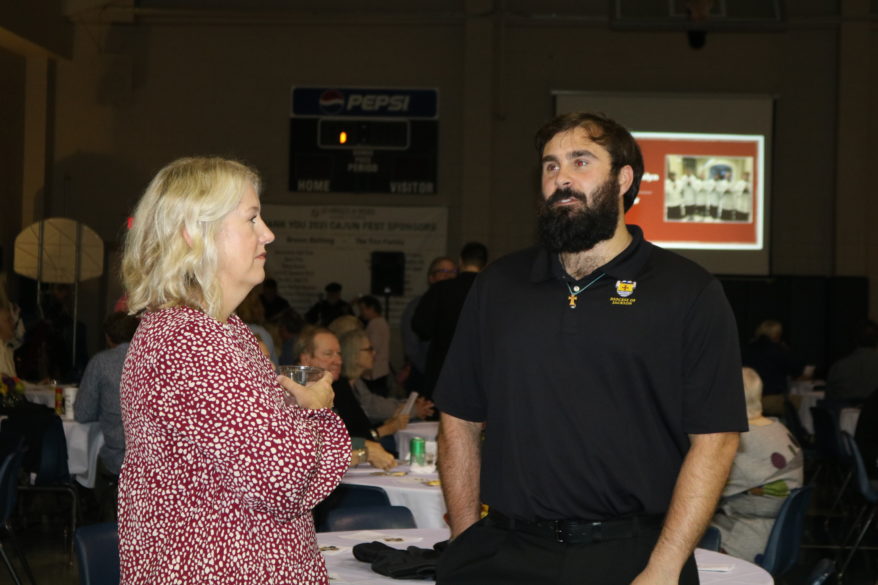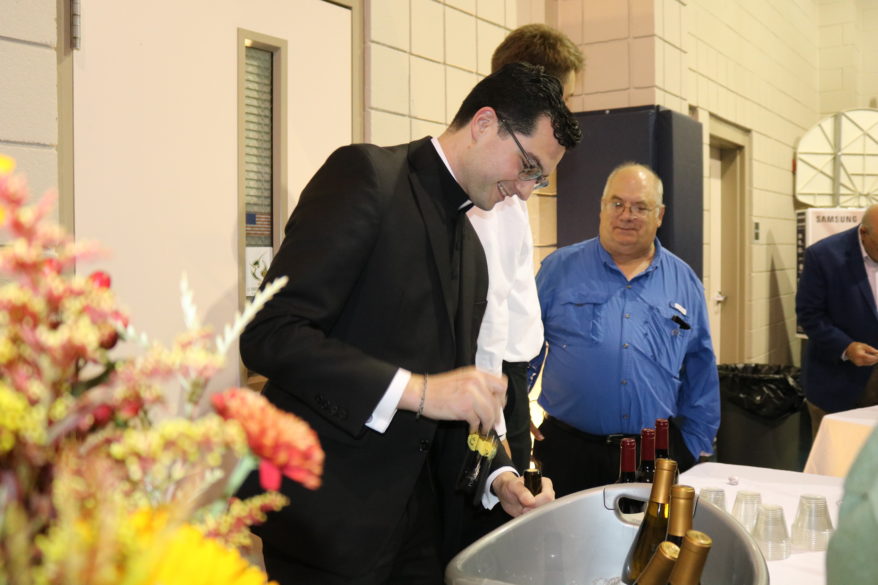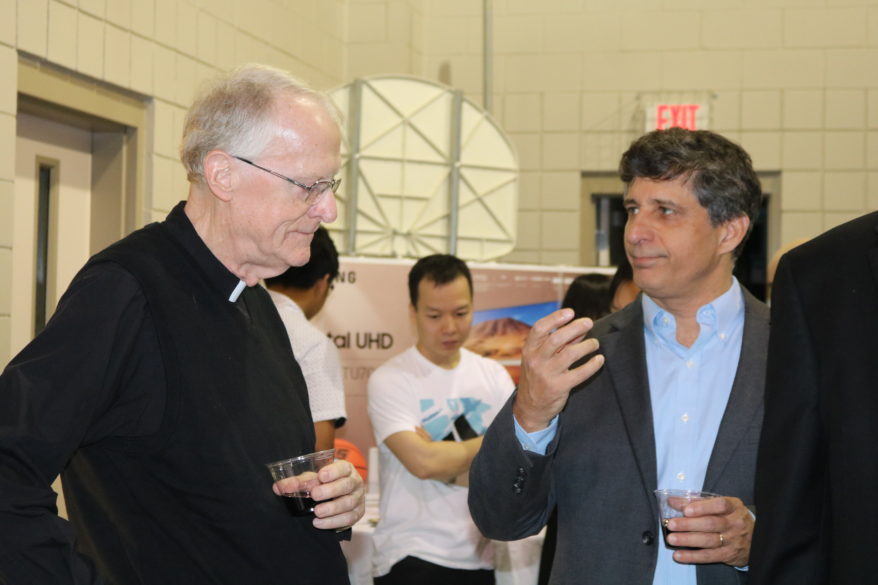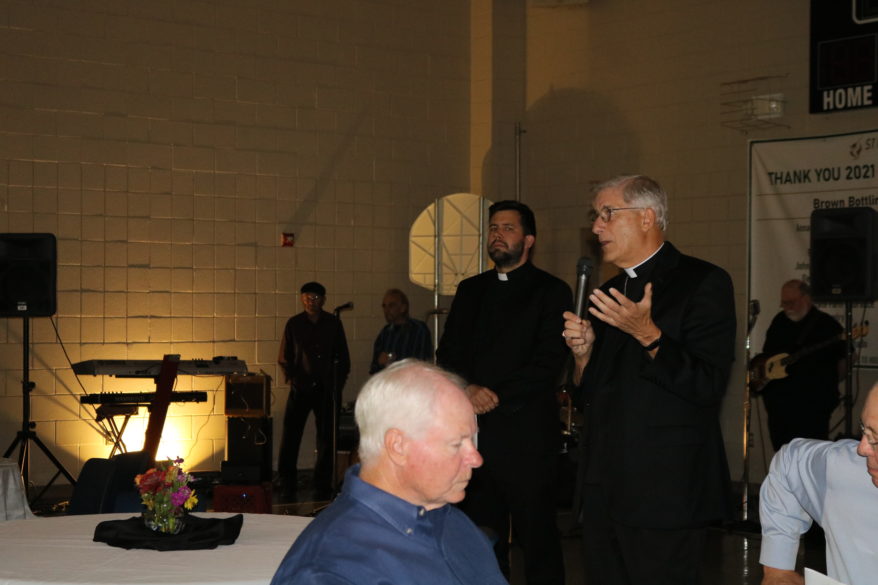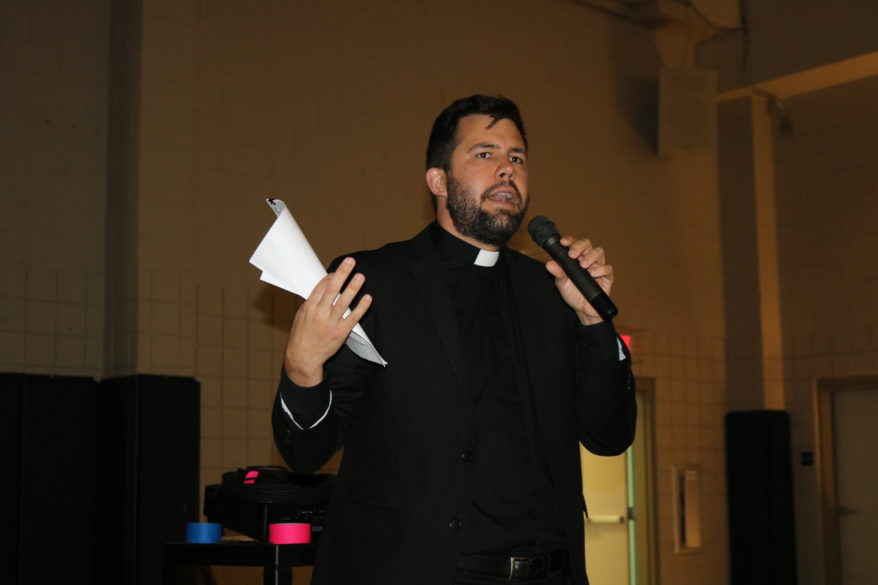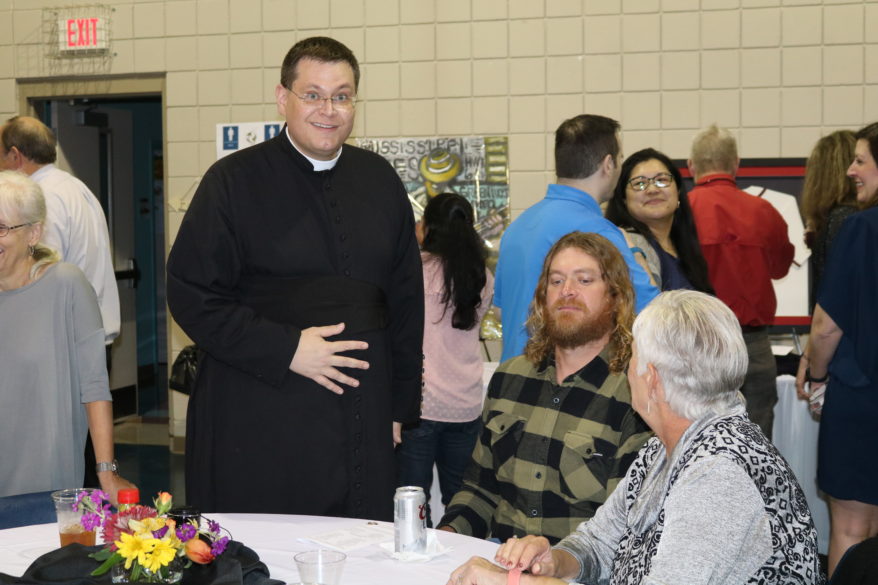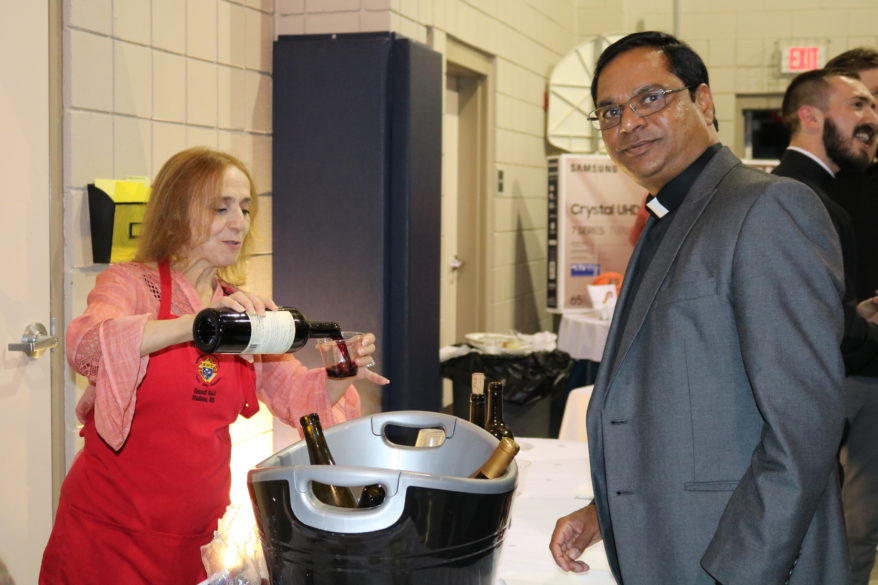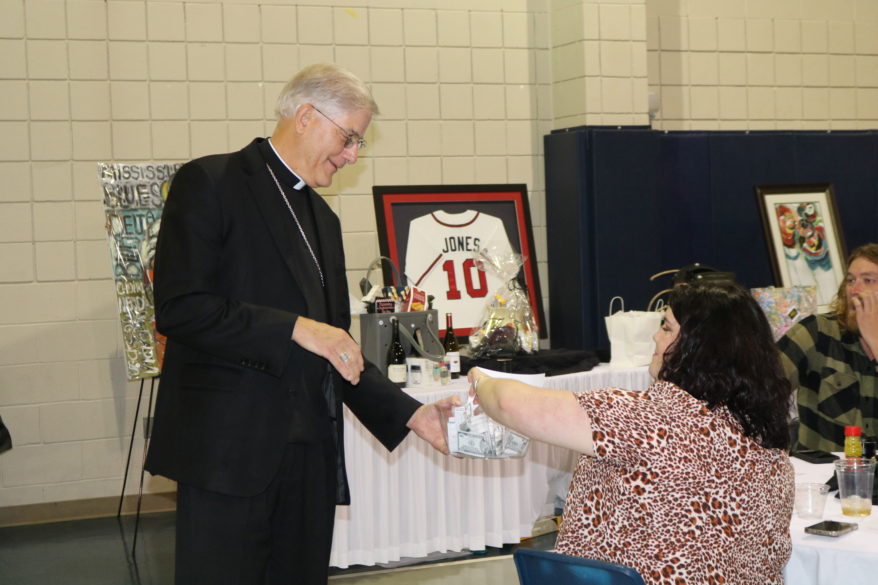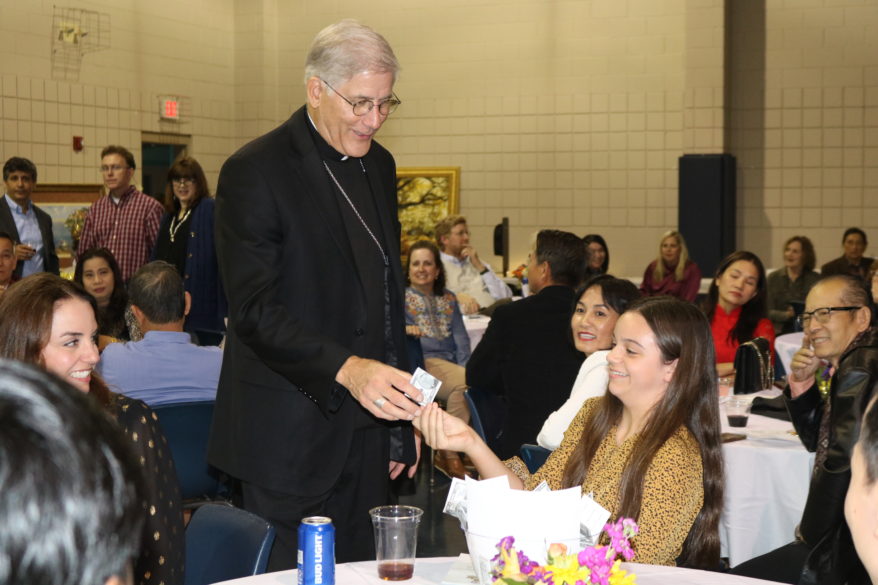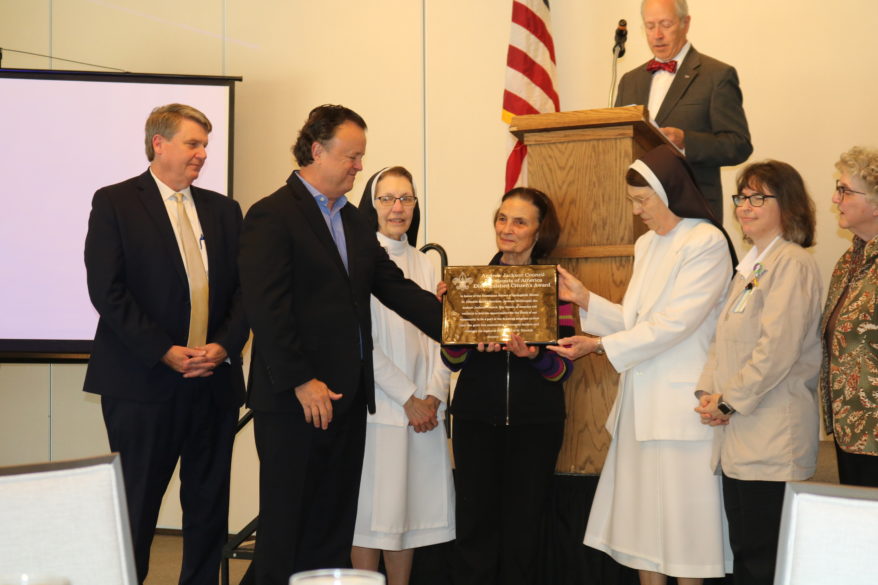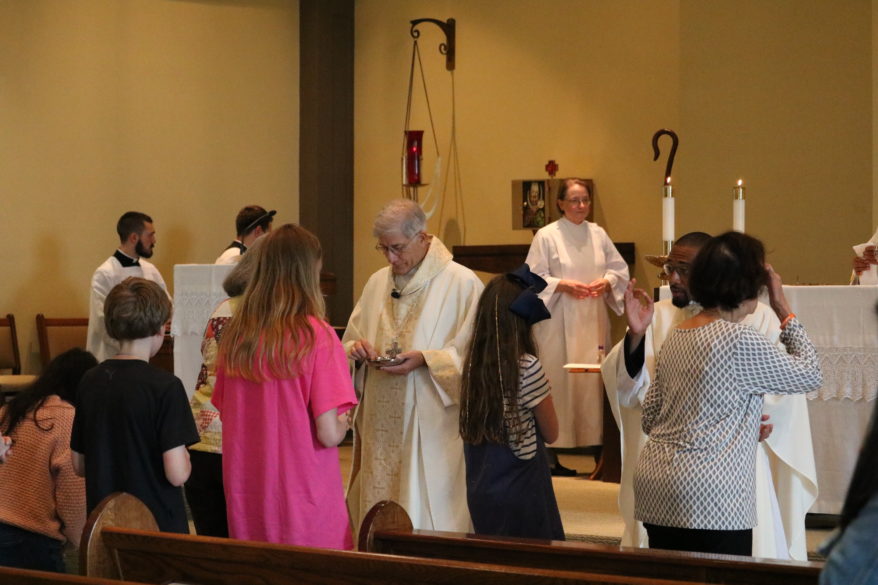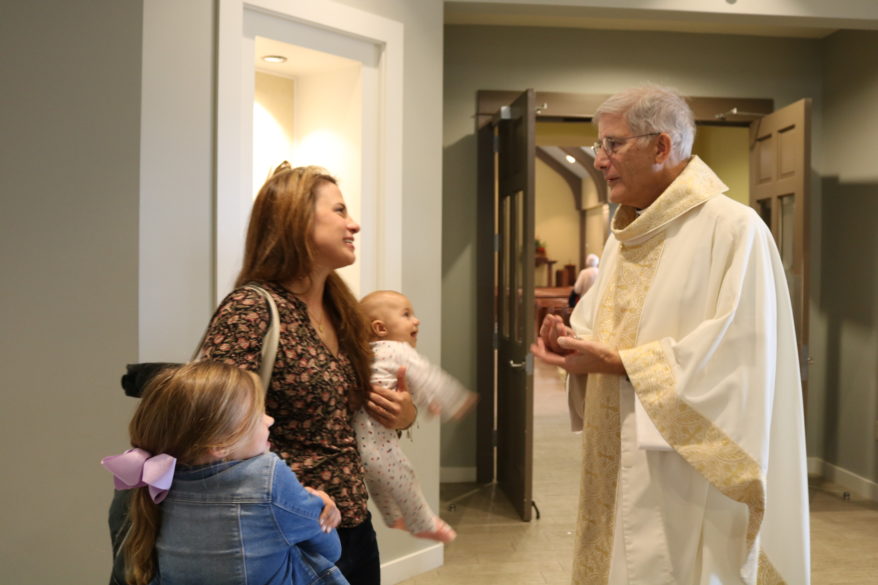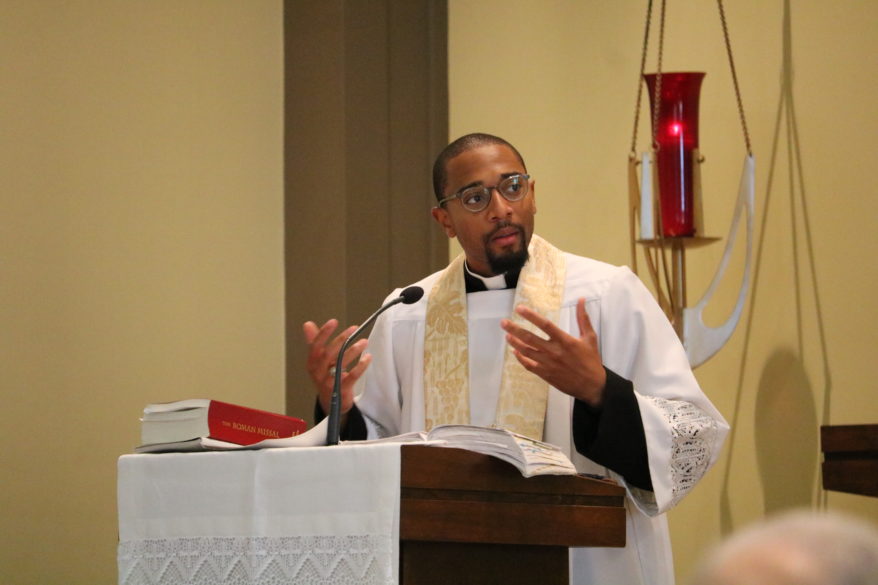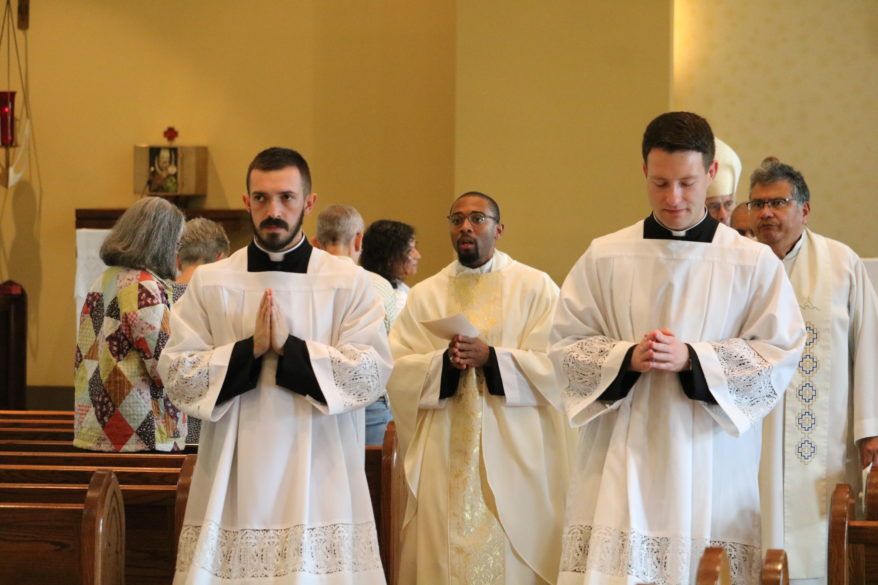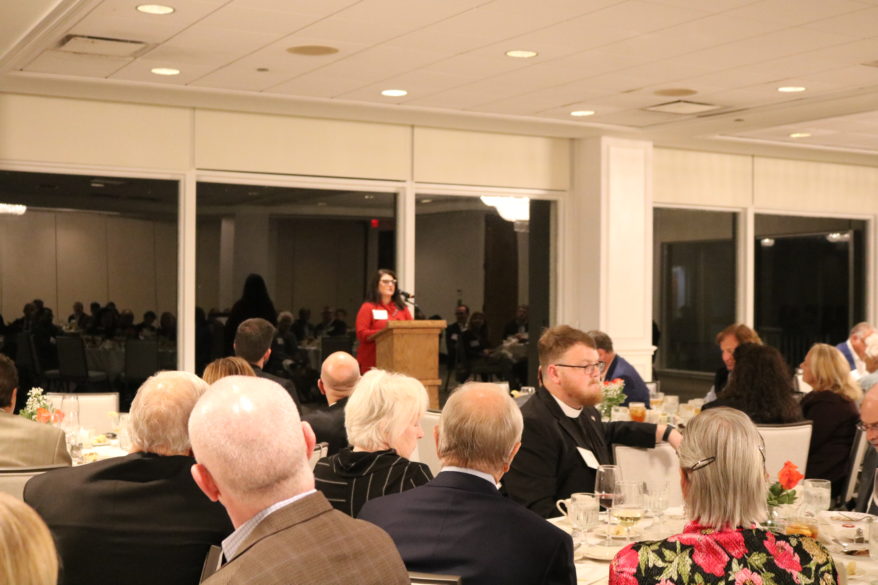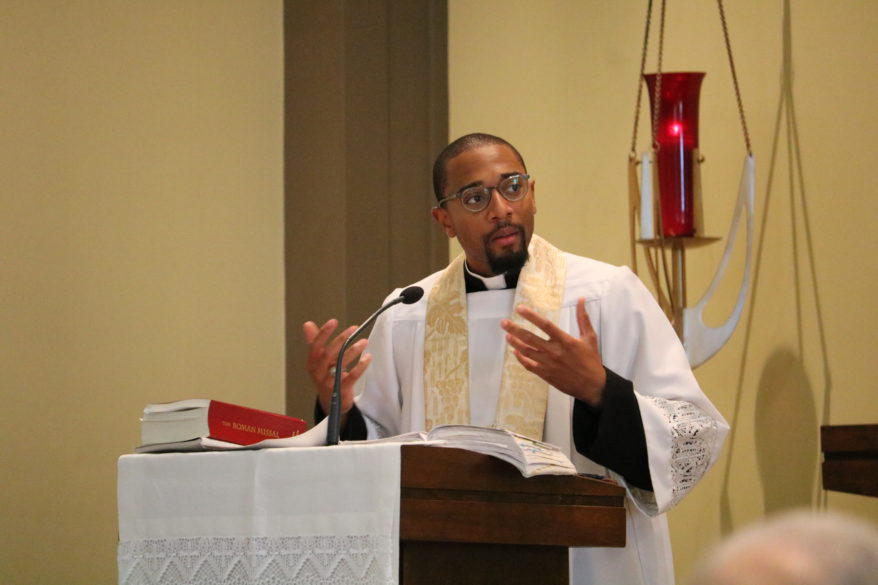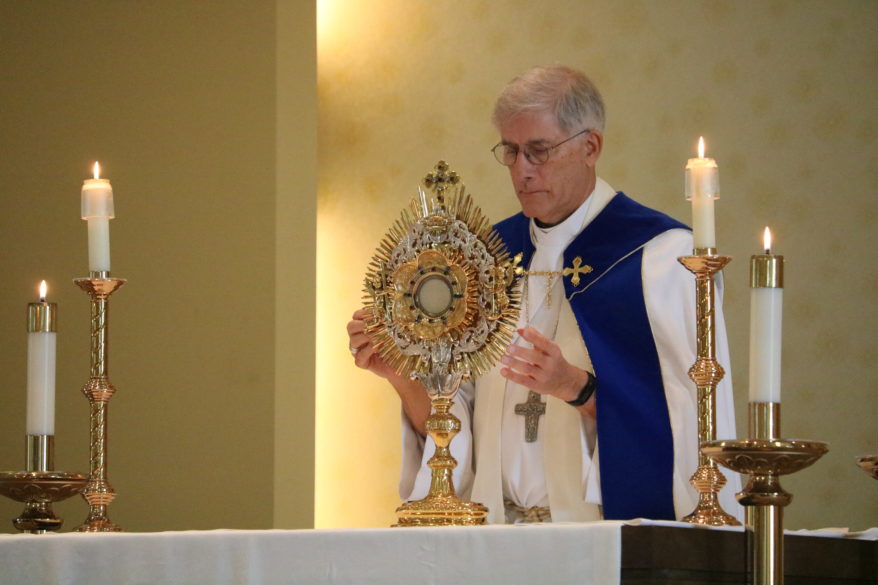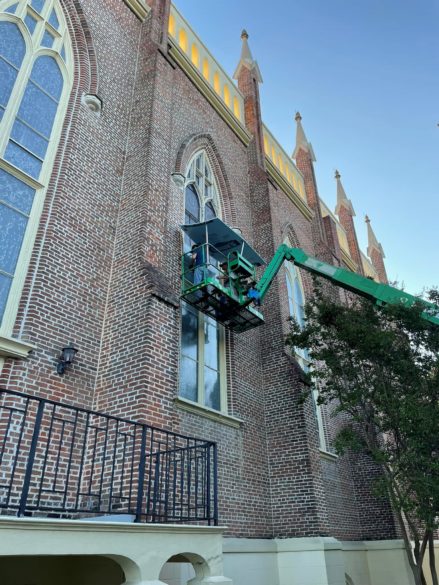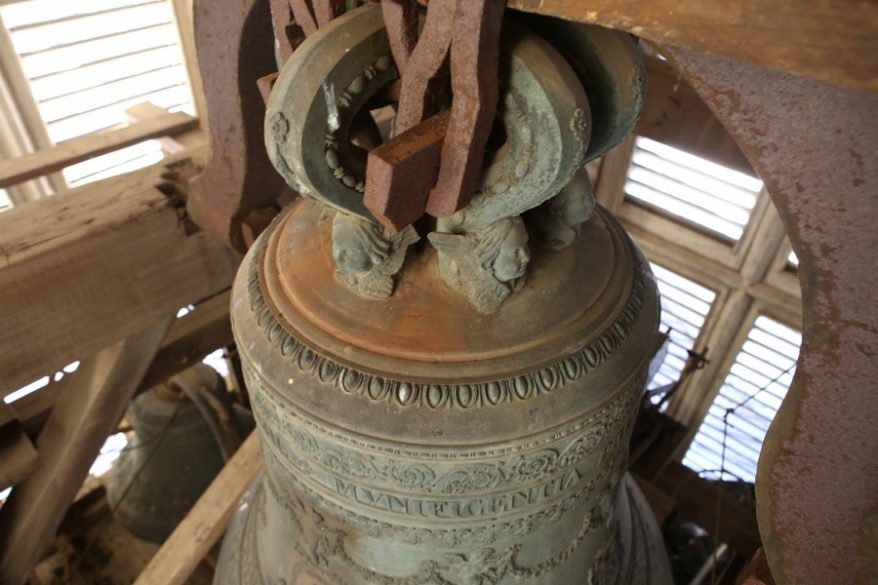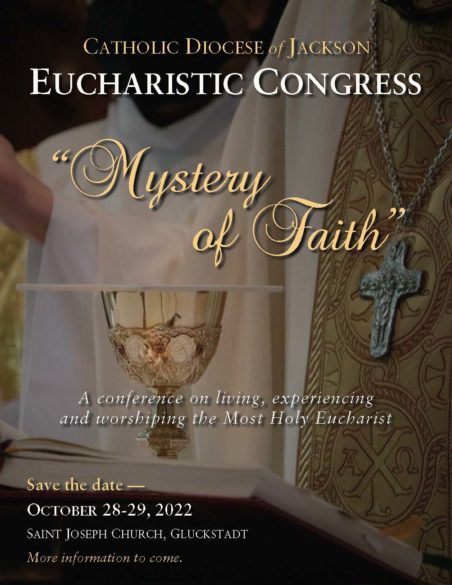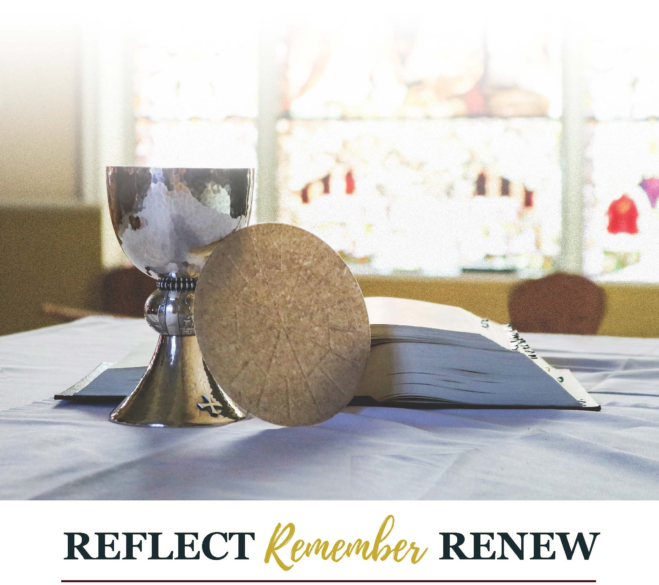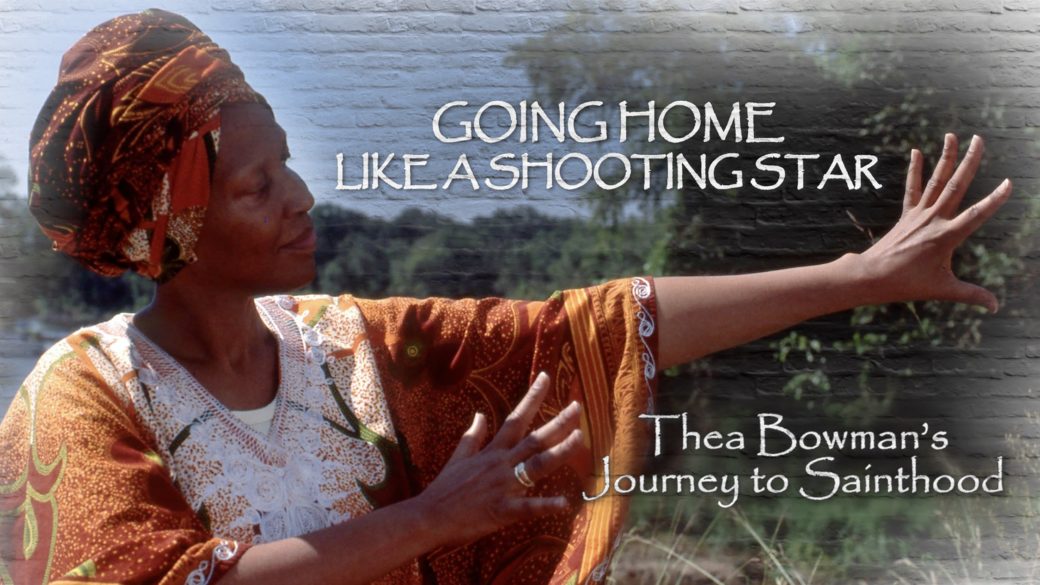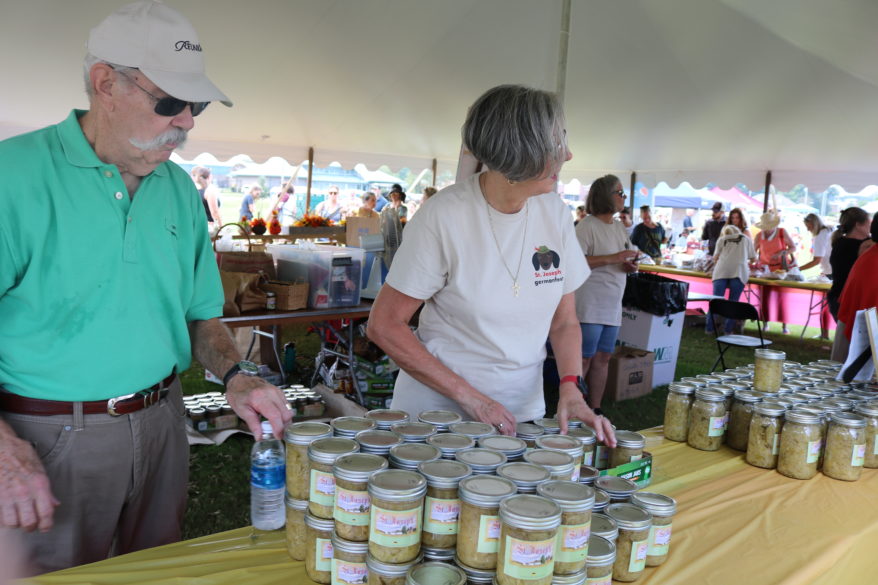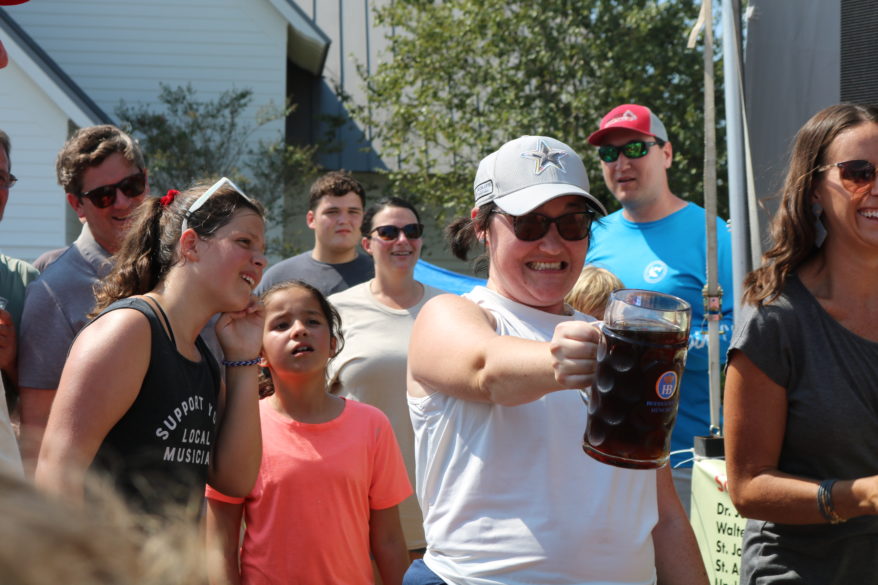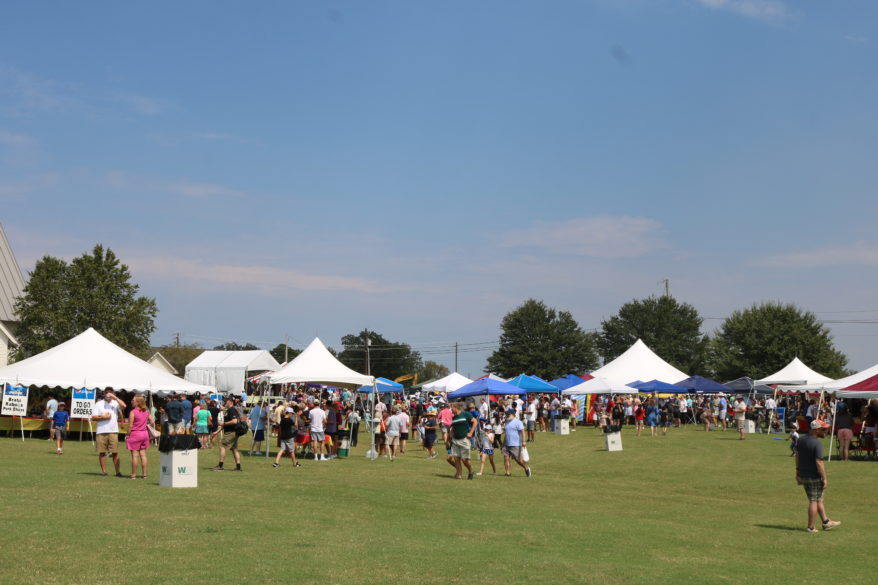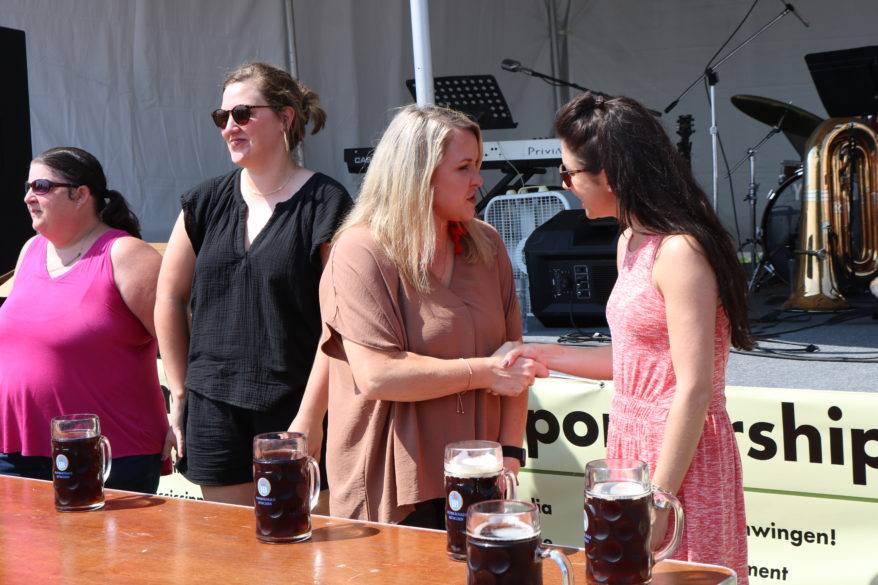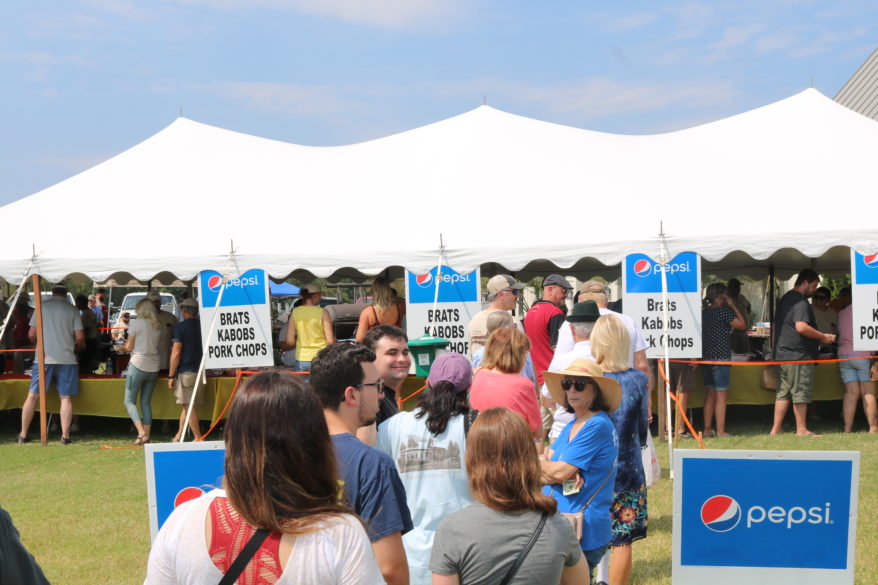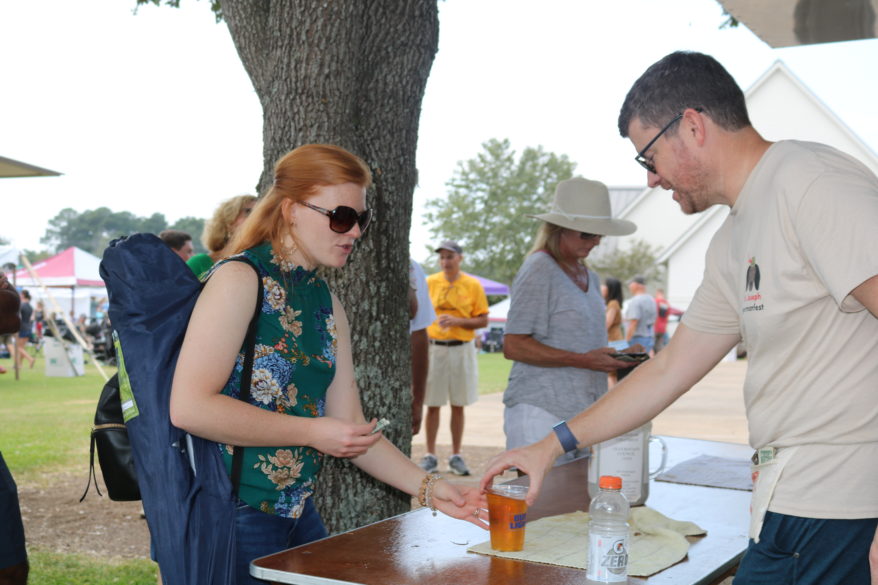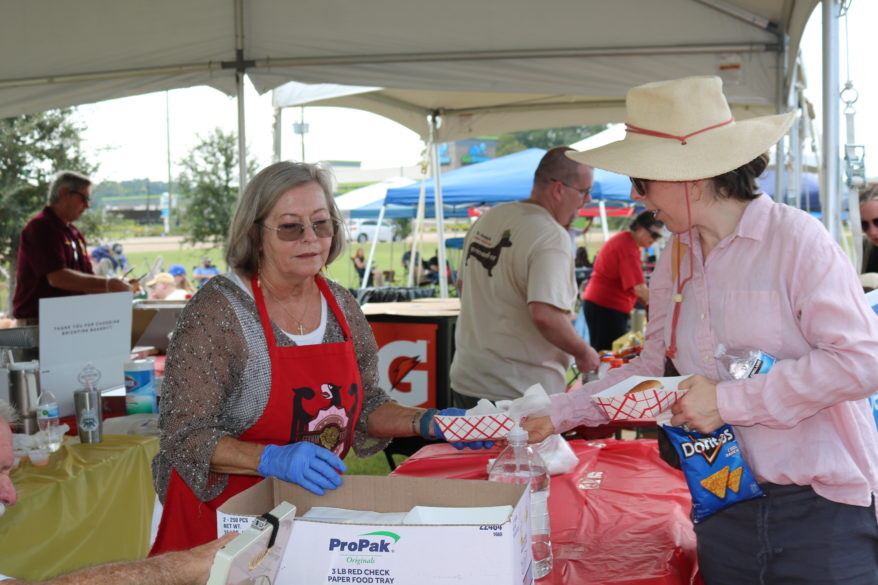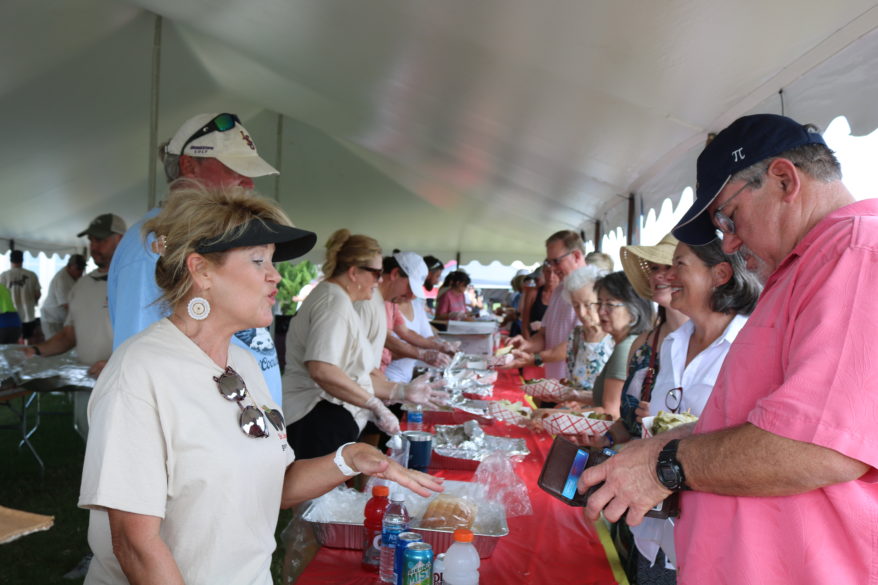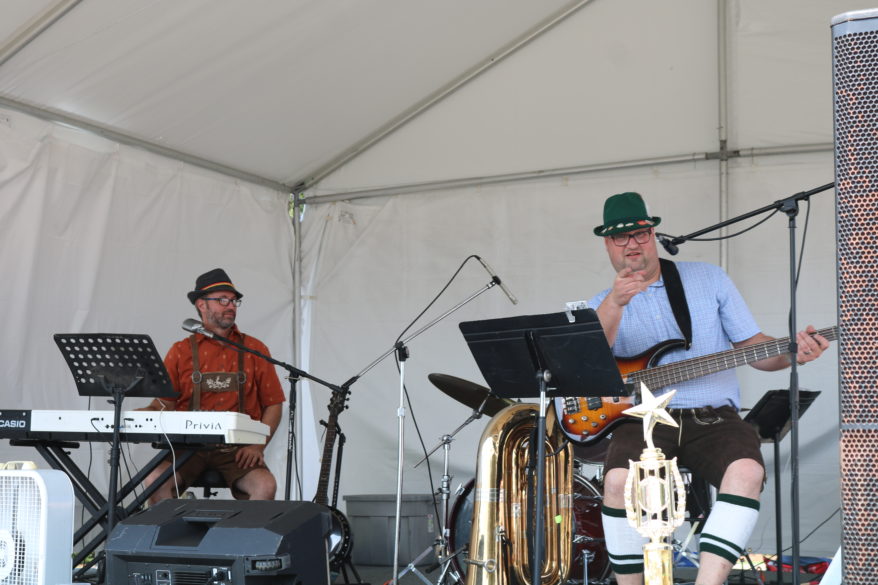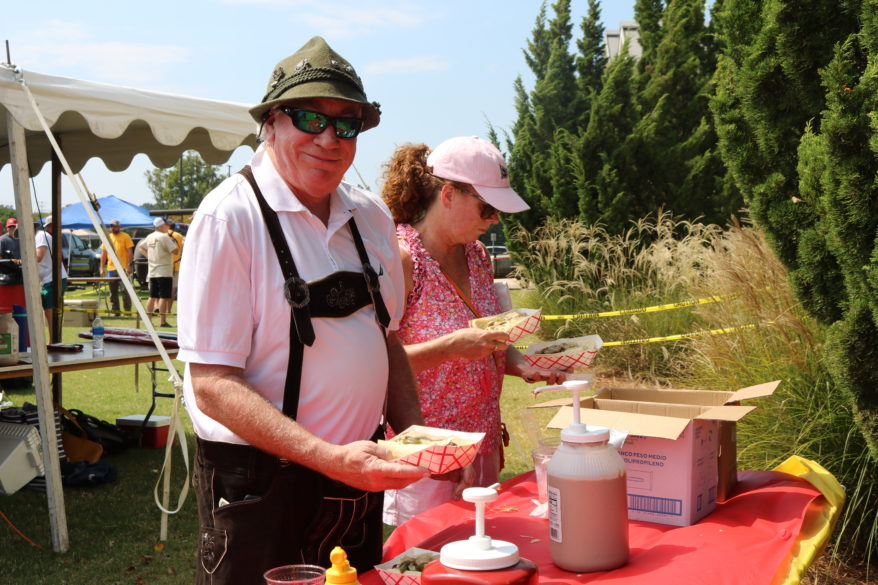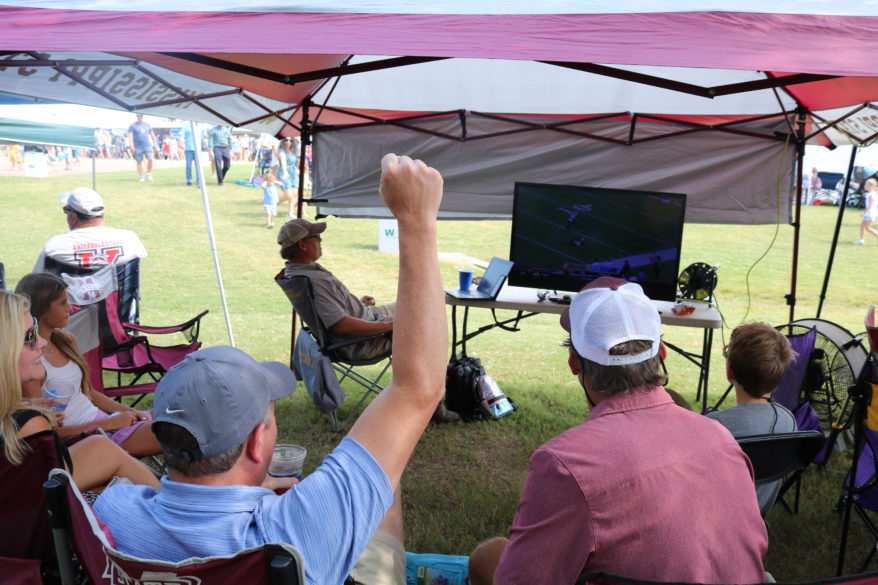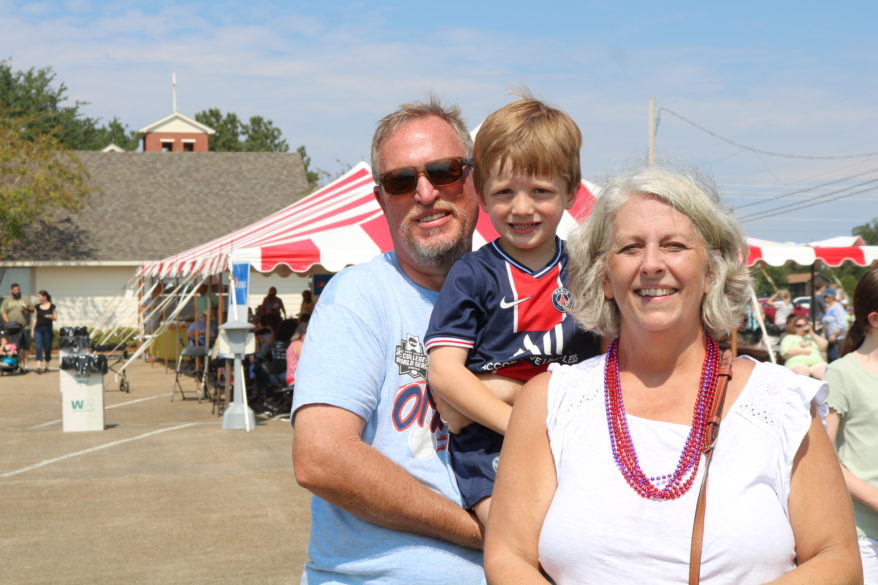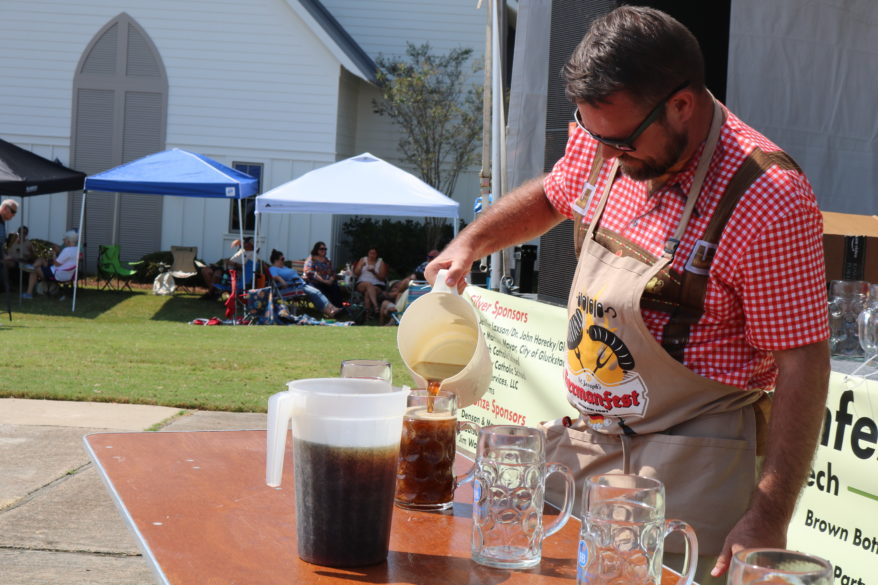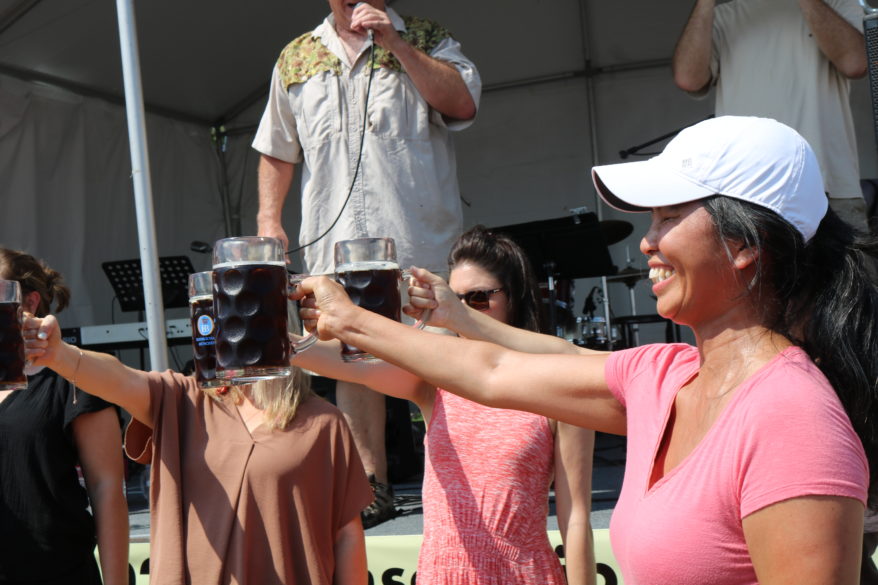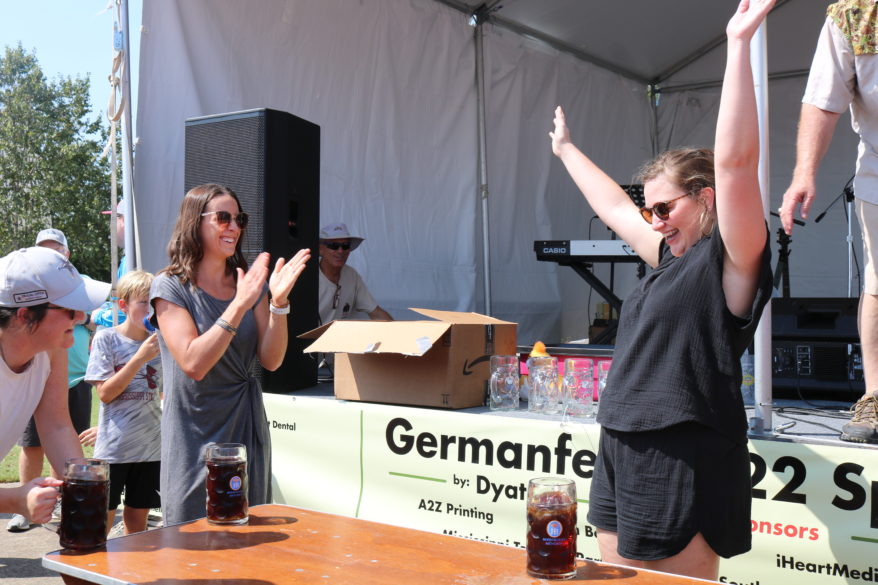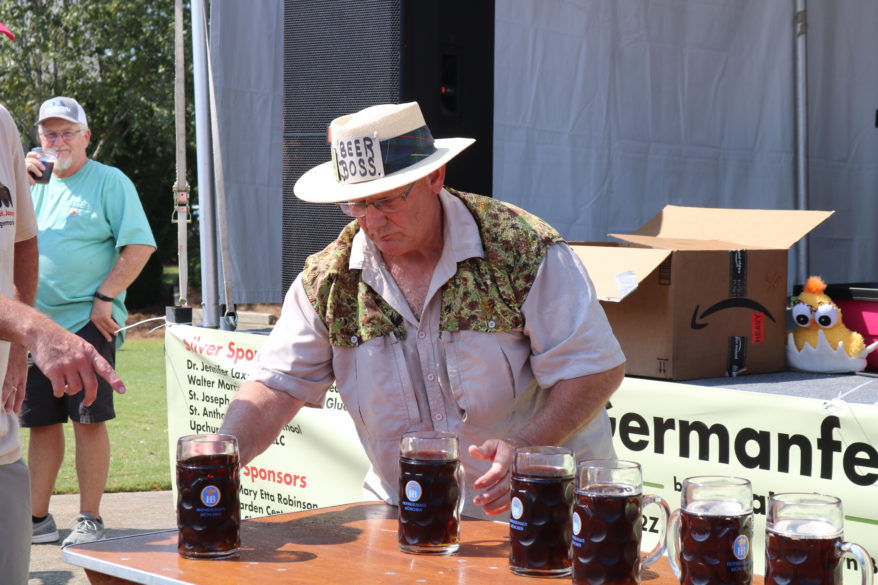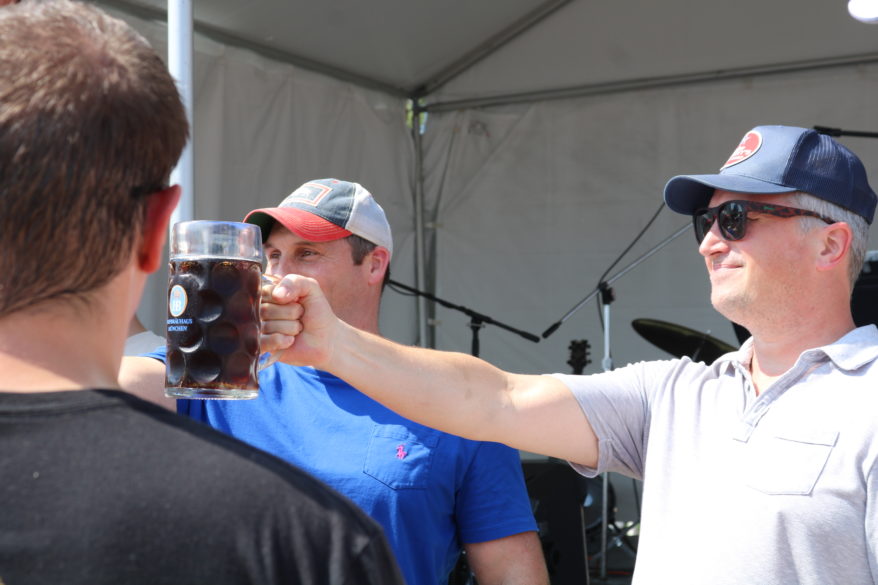By Joanna Puddister King
MADISON – The Jackson Seminarian Homegrown Harvest began with a vision of an event to celebrate the Catholic faith and the future priests of the Diocese of Jackson. It has grown from its humble beginning, in 2020 during COVID, as a online only, livestream event where Father Nick Adam and Bishop Joseph Kopacz talked about vocations to viewers.
This year approximately 200 guests were in attendance for the event at St. Francis of Assisi Church in Madison. And the event looks to continue to grow.
Through the first part of October, seminarian Deacon Carlisle Beggerly served his internship at St. Francis of Assisi Madison.
“During the diaconate internship we try to place our men in parishes that will given them a wide range of experiences,” said Father Nick told event attendees.
“He is really reaching the end of his process. From wondering about being a priest, feeling that tug in his heart to do so and being supported by the diocese.”
To much applause, Father Nick announced to the crowd that Deacon Carlisle will be ordained a priest for the diocese on June 10, 2023.
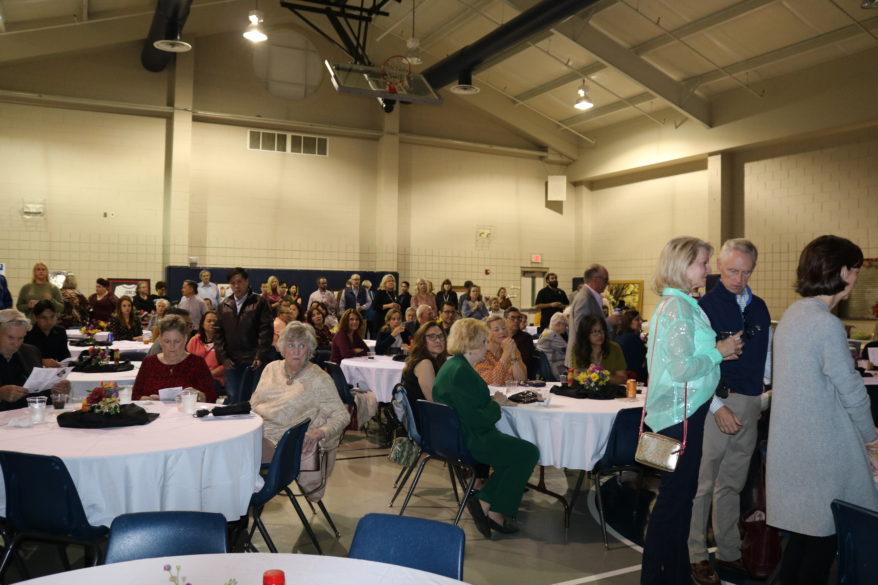
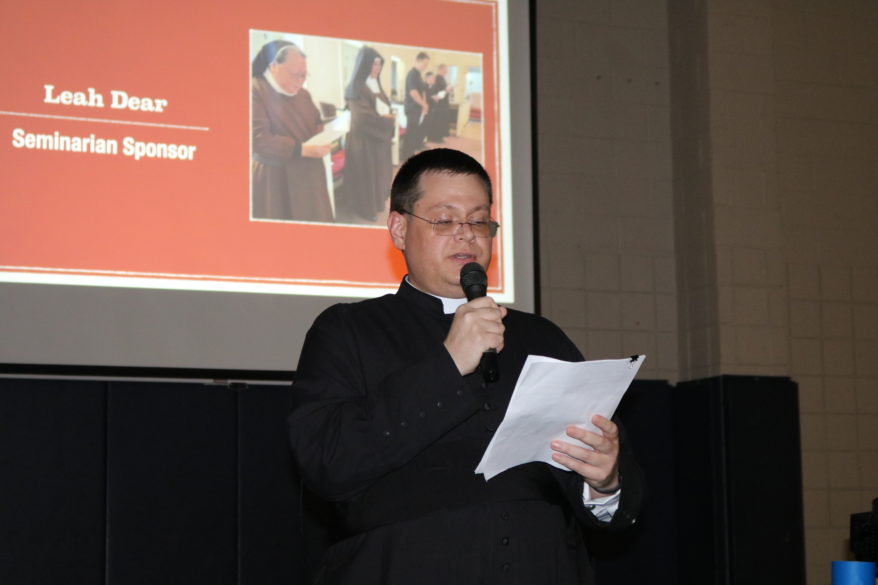
MADISON – Above supporters from around the diocese attended the third annual Jackson Seminarian Homegrown Harvest event held at St. Francis parish this year. Inset: Seminarian, Deacon Carlisle Beggerly speaks to the crowd. (Photos by Joanna Puddister King)
A convert from Protestantism, Deacon Carlisle encountered St. Augustine’s Confessions, that ultimately led him on a journey to Catholicism and on to the priesthood. In college, he began to feel a “quiet whisper” to a vocation.
Speaking on his diaconate internship at the event, he said that he was indebted to the parishioners at St. Francis for their assistance in forming his ministry and to Father Albeen Vatti, pastor of the parish.
Deacon Carlisle said he is confident he is on the right path now. “I truly believe God is calling me to … use my talents for the greater glory of God.”
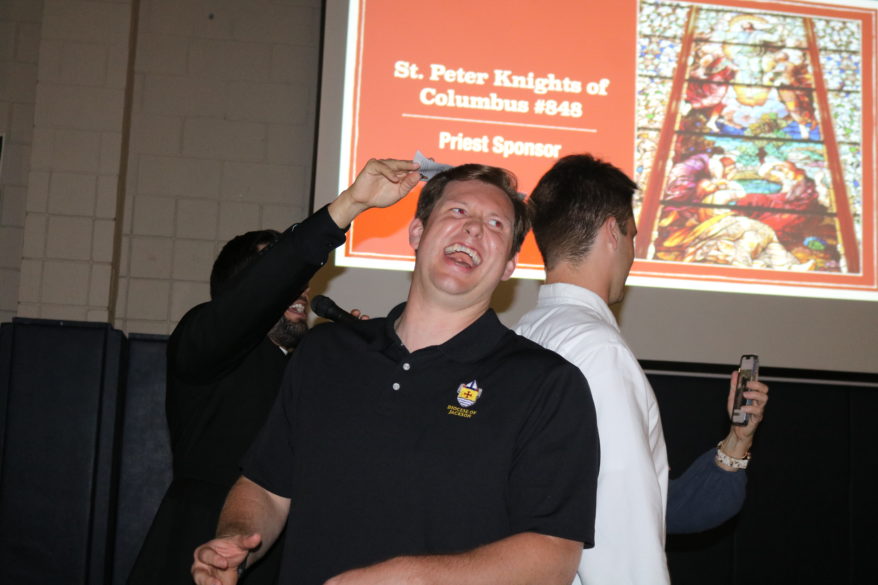
The diocese now has nine seminarians – Deacon Carlisle Beggerly, Ryan Stoer, Tristan Stovall, John Le, Will Foggo, Grayson Foley, Tripp Bond, EJ Martin and Straton Garrard – and their education and formation costs are close to $50,000 per student annually.
Their education cost are covered by a variety of cources including the diocese, second collections, and fundraising events like the Homegrown Harvest. At this year’s event, attendees were able to give extra support through a silent auction and raffles using “Beggerly Bucks.”
“It looks like we landed right at about $145,000 in proceeds from the Homegrown Harvest this year,” said Father Nick. “That’s a 71% increase from last year. This is in huge thanks to all of our sponsors, too.”
A 2011 graduate of St. Joseph Catholic School in Madison and of Springhill College to working professionally in Austin, Texas for a few years, new seminarian EJ Martin took an opportunity to talk to those gathered about his experience during his first few months this year at seminary.
At 30 years old, Martin is grateful to the people of the diocese for being able to spend his time immersed in formation at Notre Dame Seminary in New Orleans.
“I could not imagine doing this with a full-time job,” said Martin. “It’s absolutely incredible to step away from where I was and to really immerse myself into the formation process of what it is to be a man of God.”
(To learn more about vocations, contact Father Nick Adam at nick.adam@jacksondiocese.org.)
